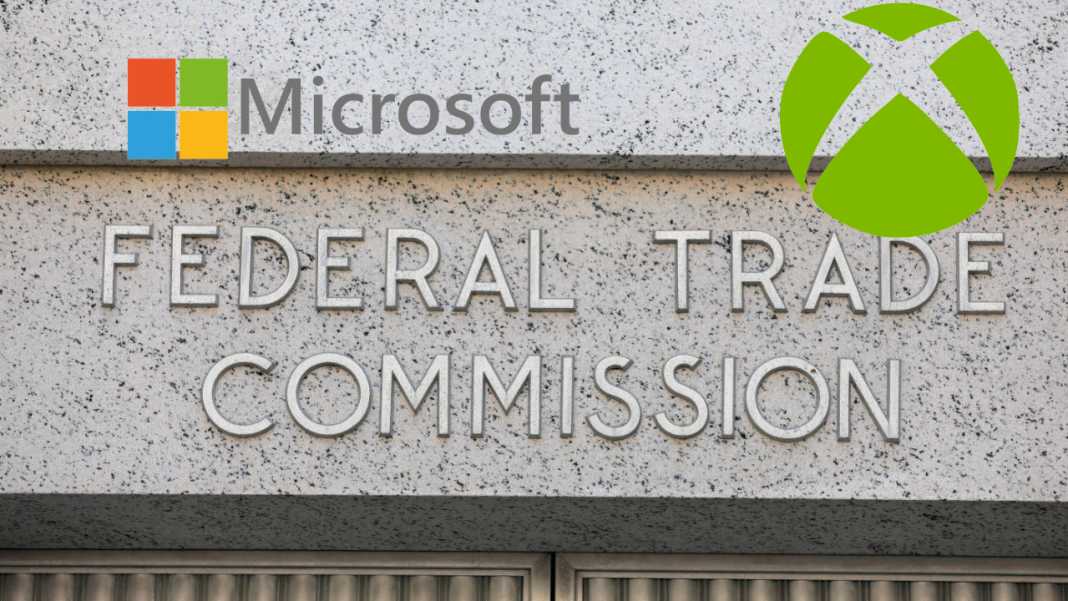FTC's Appeal Against Microsoft-Activision Merger Approval

Table of Contents
The FTC's Core Arguments Against the Merger
The Federal Trade Commission (FTC) is challenging the Microsoft-Activision Blizzard merger based on several key concerns about its potential impact on competition within the gaming market.
Concerns Regarding Competition in the Cloud Gaming Market
The FTC argues that Microsoft's acquisition of Activision Blizzard, a company boasting iconic franchises like Call of Duty, World of Warcraft, and Candy Crush, would significantly stifle competition in the rapidly growing cloud gaming market. This fear stems from Microsoft's potential to leverage its newfound power to create an unfair advantage.
- Microsoft's potential to exclude rivals: The FTC worries that Microsoft could prevent competing cloud gaming services from accessing Activision Blizzard's popular game titles, effectively locking them out of the market. This would limit consumer choice and innovation.
- Loss of innovation and consumer choice: By limiting access to Activision Blizzard's games, the FTC believes that Microsoft could stifle innovation and reduce the variety of games available to cloud gaming subscribers.
- Anti-competitive practices: The FTC anticipates that Microsoft could use its control over Activision Blizzard's titles to implement anti-competitive practices, resulting in higher prices and fewer options for consumers. This would directly contradict the principles of a free and competitive market.
Dominance in the Console and PC Gaming Markets
Beyond cloud gaming, the FTC also expresses significant concern about Microsoft's potential for increased dominance in the console and PC gaming markets. The acquisition of Activision Blizzard would grant Microsoft control over a vast portfolio of hugely popular gaming titles.
- Exclusivity Concerns: A major worry is Microsoft making Activision Blizzard games exclusive to its Xbox ecosystem. This move could severely disadvantage competitors like Sony's PlayStation and other PC gaming platforms.
- Impact on Competition: The FTC argues that this exclusivity would significantly harm competition among game consoles and PC platforms, potentially leading to a less diverse and innovative gaming environment.
- Reduced Innovation and Higher Prices: Without robust competition, the FTC believes that Microsoft could raise prices and reduce the drive for innovation in game development and technology.
The Role of Call of Duty in the FTC's Argument
Call of Duty, a consistently top-selling and globally popular video game franchise, plays a central role in the FTC's argument. The FTC fears that making Call of Duty exclusive to Xbox would significantly harm competition.
- Maintaining Market Balance: Call of Duty's multi-platform presence has been a key factor in maintaining a balanced competitive landscape. The FTC believes that changing this status quo could have significant negative consequences.
- Unfair Competitive Advantage: The FTC argues that Microsoft could leverage Call of Duty's immense popularity to gain an insurmountable advantage over its competitors, potentially driving them out of the market entirely.
- Market Share and Consumer Choice: A detailed analysis of Call of Duty's market share and its influence on consumer gaming choices supports the FTC's claim that its exclusivity would have a profoundly negative impact.
Microsoft's Counterarguments and Proposed Solutions
Microsoft has strongly contested the FTC's claims, arguing that the merger will ultimately benefit consumers and promote competition. They have offered several solutions to address the FTC's concerns.
- Cross-Platform Commitment: Microsoft has pledged to continue releasing Call of Duty on other platforms, including PlayStation, Nintendo Switch, and various cloud gaming services. This commitment aims to alleviate concerns about exclusivity.
- Innovation and Development: Microsoft argues that the merger will foster innovation and accelerate the development of new gaming technologies and experiences. They believe that the combined resources will lead to a better gaming experience for everyone.
- Increased Competition: Counterintuitively, Microsoft claims the merger will actually increase competition by fueling innovation and allowing for more ambitious game development projects.
Potential Outcomes and Implications
The FTC's appeal could result in several outcomes, each with significant implications for the gaming industry.
- Blocked Merger: The FTC could successfully block the merger entirely, preventing Microsoft from acquiring Activision Blizzard.
- Modified Agreement: A compromise could be reached, where the merger proceeds but with specific conditions imposed by the FTC to mitigate its competitive concerns.
- Dismissal of Appeal: The FTC's appeal could be dismissed, allowing the merger to proceed without further regulatory hurdles.
The impact on the gaming industry will be far-reaching: changes in game prices, availability, innovation levels and the overall competitive landscape are all possible outcomes. The case also sets a crucial precedent for future mergers and acquisitions in the tech sector, shaping regulatory approaches to similar deals in the years to come.
Conclusion
The FTC's appeal against the Microsoft-Activision merger is a crucial event shaping the future of the gaming industry. The outcome will significantly impact competition, consumer choice, and the direction of gaming innovation. Understanding the complexities of the FTC's arguments, Microsoft's counterarguments, and the potential outcomes is essential. Keeping abreast of developments in the FTC's appeal against the Microsoft-Activision merger is vital for anyone interested in the future of gaming. Stay informed and follow the ongoing analysis surrounding the FTC's appeal against the Microsoft-Activision merger to stay updated on this important and evolving legal battle.

Featured Posts
-
 9 Billion Mgm Japan Casino Groundbreaking After Years Of Delays
Apr 25, 2025
9 Billion Mgm Japan Casino Groundbreaking After Years Of Delays
Apr 25, 2025 -
 Trumps Shift In Tone Triggers Gold Price Increase
Apr 25, 2025
Trumps Shift In Tone Triggers Gold Price Increase
Apr 25, 2025 -
 Japanese Asset Market Booms As Us Investment Slows
Apr 25, 2025
Japanese Asset Market Booms As Us Investment Slows
Apr 25, 2025 -
 Tendencias De Maquiagem Descubra O Charme Da Aquarela
Apr 25, 2025
Tendencias De Maquiagem Descubra O Charme Da Aquarela
Apr 25, 2025 -
 War Heros Anzac Day Outrage Schools Snub And A Nations Future
Apr 25, 2025
War Heros Anzac Day Outrage Schools Snub And A Nations Future
Apr 25, 2025
Latest Posts
-
 Le Labo Du 8 Une Exposition Photographique De Pierre Terrasson
Apr 26, 2025
Le Labo Du 8 Une Exposition Photographique De Pierre Terrasson
Apr 26, 2025 -
 Milan Design Week 2025 Saint Laurent Showcases The Legacy Of Charlotte Perriand
Apr 26, 2025
Milan Design Week 2025 Saint Laurent Showcases The Legacy Of Charlotte Perriand
Apr 26, 2025 -
 Exposition De Photos De Pierre Terrasson A La Galerie Le Labo Du 8
Apr 26, 2025
Exposition De Photos De Pierre Terrasson A La Galerie Le Labo Du 8
Apr 26, 2025 -
 Saint Laurent And Charlotte Perriand A Milan Design Week 2025 Collaboration
Apr 26, 2025
Saint Laurent And Charlotte Perriand A Milan Design Week 2025 Collaboration
Apr 26, 2025 -
 Dong Duong Hotel Joins Fusion Hotel Collection In Hue
Apr 26, 2025
Dong Duong Hotel Joins Fusion Hotel Collection In Hue
Apr 26, 2025
